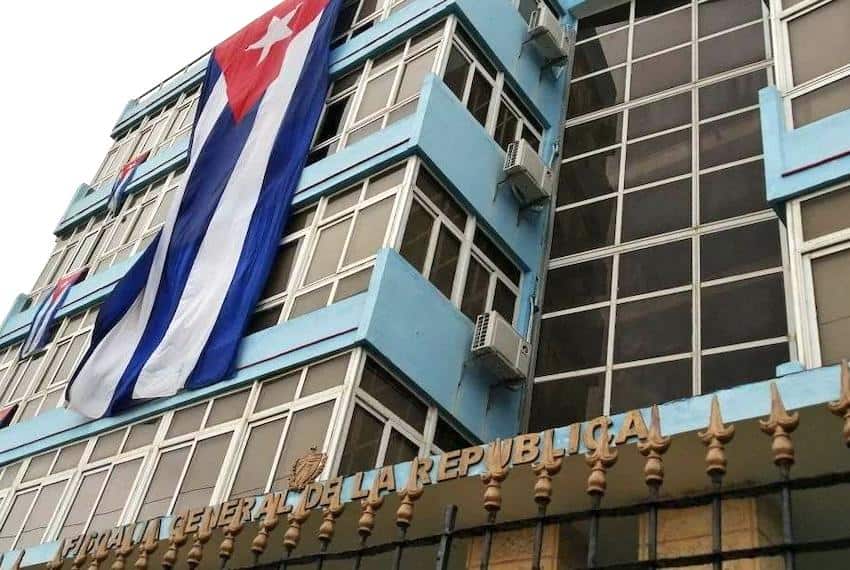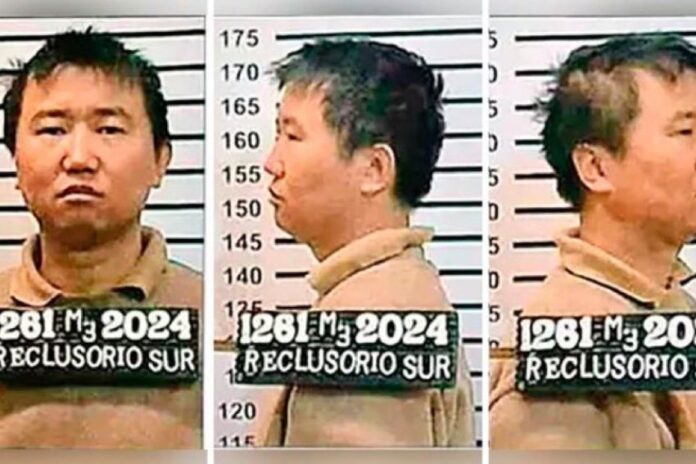A Chinese national and alleged fentanyl kingpin who escaped from house arrest in Mexico City in July was recently arrested in Cuba, according to Cuban and Mexican authorities.
Zhi Dong Zhang, known as “Brother Wang” and “El Chino,” will reportedly be transferred to Mexico from Cuba, after which it appears likely he will be sent to the United States to face drug trafficking and money laundering charges.

Mexican authorities were informed of Zhang’s arrest in Cuba by Cuban authorities, according to various newspaper reports that cited information from Mexican officials.
The Chinese national reportedly arrived in Cuba with a fake passport after he was denied entry to Russia. Interpol had issued a Red Notice requesting his arrest.
The circumstances and timing of Zhang’s arrest in Cuba are unclear. The newspaper Reforma reported he was detained “some weeks” ago, while Milenio reported that the arrest occurred two months ago.
Zhang is allegedly a key ally of the Jalisco New Generation Cartel and the Sinaloa Cartel, both of which were designated as foreign terrorist organizations by the United States government earlier this year. According to the U.S. Drug Enforcement Administration, he has worked for those cartels since at least 2016.
According to Milenio, Zhang acted as a “link” between cartels in Mexico and criminal groups in China, where precursor chemicals for the production of fentanyl and other illicit drugs are sourced.
He is also described as a “broker” and “facilitator” of drug-related transactions. In addition to “Brother Wang” and “El Chino,” Zhang has a number of other aliases, including “Pancho” and “Nelson Mandela.”
Arrest and escape in Mexico
Zhang, born in Beijing in 1987, was arrested in the Mexico City borough of Cuajimalpa in late October 2024.
Federal Security Minister Omar García Harfuch said on Oct. 31, 2024, that a “foreign person related to drug trafficking and money laundering” had been detained. He noted that the suspect was wanted in the United States.
In 2022, a federal court in Atlanta, Georgia, issued a warrant for Zhang’s arrest on drug trafficking and money laundering charges.
After his arrest in Mexico City, Zhang was held at a prison in a southern district of the capital. A few months later, a judge ruled that he could leave prison and go into house arrest at a property in the Tlalpan borough of Mexico City.
The National Guard was responsible for monitoring Zhang while he was under house arrest, but on July 11, the suspect nevertheless escaped from the house via a tunnel that led to an adjacent property. The suspect was reportedly able to remove and destroy the ankle monitor he was wearing prior to his escape.
Three people were arrested the same day on charges of assisting Zhang’s escape, which has been compared to Joaquín “El Chapo” Guzmán’s 2015 escape from a Mexican prison via a 1.5-kilometer-long tunnel. It is unclear where and how the alleged Chinese criminal exited Mexican territory.
President Claudia Sheinbaum criticized the judge who allowed Zhang to be held under house arrest, saying that a foreign national facing such serious charges should have remained in prison.
“He was granted house arrest with no grounds for it,” she said shortly after his escape.
“We’ve been insisting that there is corruption in the judiciary,” added Sheinbaum, who supported the judicial reform that allowed Mexico’s judiciary to be renewed via the country’s first-ever judicial elections in June.
Just days before the suspect’s escape, a federal court in Georgia had issued fresh charges against Zhang. The newspaper El País reported that “he is accused of laundering at least [US] $20 million in the United States between 2020 and 2021 alone, through a complex network of more than 150 shell companies and 170 bank accounts.”
Zhang is also accused of shipping large quantities of fentanyl, cocaine and methamphetamine to the United States. His criminal network is alleged to have operations in the Americas, Asia and Europe.
According to El País, “Zhang’s organization is based in Los Angeles, California, and Atlanta, Georgia, but it has ties to Central and South America, Europe and Asia.”
Transfer to Mexico
Citing security cabinet sources, the newspaper El Universal reported that Zhang will be transferred to Mexico from Cuba once the relevant bureaucratic procedures have been completed.
Citing Mexican government sources, El País reported that “Mexico is waiting for Cuban authorities to complete his interrogation before receiving him in Mexico” and then “automatically deporting him to the United States.”
If, as expected, Mexico sends Zhang to the United States to face criminal charges, the Chinese national will join dozens of cartel figures who have already been extradited to the U.S. from Mexico this year.
Mexico sent 26 organized crime figures to the United States in August, while 29 such people, including notorious drug lord Rafael Caro Quintero, were transferred to the U.S. in February.
With reports from Reforma, El Universal, Milenio, El País and The Wall Street Journal
